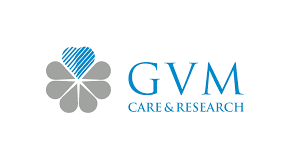
The Company
Maria Cecilia Hospital is a High Specialty facility belonging to the GVM Care&Research healthcare network. It is a multi-specialist structure affiliated with the NHS specialized in the following therapeutic areas: Arrhythmology and electrophysiology, Heart surgery, Hemodynamics and Endovascular Interventional Cardiology, Gamma Knife, Neurosurgery. The facility is an internationally recognized reference center for the treatment of diabetic foot and its complications.
GVM Care & Research is currently one of the major Italian groups active in the sector of healthcare, scientific medical research and training, wellness and spa treatments, hotel hospitality, the biomedical industry and business services.
After more than 40 years of activity, GVM Care & Research today certifies its presence in Italy, France, Albania, Poland and Ukraine employing over 9,800 people.
The Challenge
Maria Cecilia Hospital is the leader of the VIPER project (Integrated and personalized assessment of the risk of neuroischaemic complications in diabetes) promoted in collaboration with DataRiver, the University of Ferrara, the IRET ONLUS Foundation, the Redox company. The project aims at the early detection of ischemic phenomena and at the prevention of ulcerative lesions in patients with diabetic foot.
To understand the extent of the project, consider that the most recent WHO (World Health Organization) estimates predict 640 million patients with diabetes mellitus by 2040 (today there are 420 thousand) of which 3.5 million in Italy, with an incidence of 6.2% on the total population (ARNO Diabetes Observatory, Italian Society of Diabetology in collaboration with CINECA).
One of the most formidable complications of the pathology is the diabetic foot, a consequence of neuroischaemic processes which affects over 25% of patients and which without adequate intervention can degenerate into gangrene, with the need to resort to amputation of the limb. The Ministry of Health reports that in the three-year period 2019-2021 there were 6,500 amputations per year. Furthermore, about 8% of these patients a year underwent more than one amputation surgery and the epidemiological impact of the disease is accompanied by a significant increase in morbidity and mortality in the diabetic population.
The numbers highlight the importance of continuous monitoring of the disease for those affected, in order to identify an aggravation of the clinical picture early. This will allow setting up a winning treatment strategy with important repercussions on the patient’s quality of life and survival rate, as well as social and economic benefits.
The solution
To achieve the project objectives, the Maria Cecilia Hospital Scientific Research team, in collaboration with the project partners, proposes to combine, within a telemedicine platform, the identification of specific inflammatory biomarkers with the data collected through wearable devices that evaluate the inflammatory state of the patient’s limbs in real time.
Furthermore, the application of advanced statistical techniques and artificial intelligence algorithms to clinical data will allow the elaboration of a “risk score” for each patient.
Results
DataRiver will collaborate in the design and development of the telemedicine platform for the holistic assessment of the risk of neuroischaemic complications by making its IoMT and machine learning skills available, to allow real-time assessment of the inflammatory state of the patient’s limbs and the elaboration of a “risk score” for each patient.

